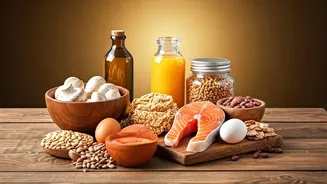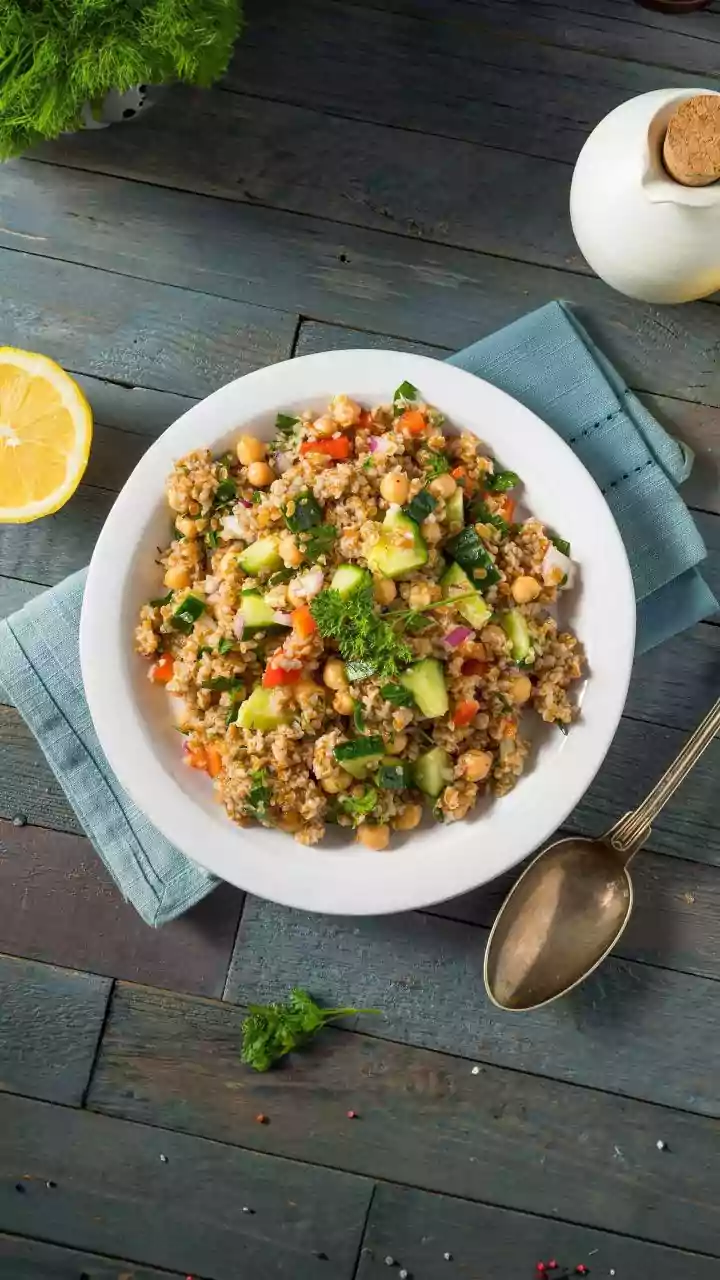Fatty Fish
Fatty fish, such as salmon, are excellent sources of vitamin D, as highlighted by numerous dietary guidelines. Consuming salmon offers a significant boost
to your vitamin D intake. When shopping for salmon, consider wild-caught options, as they often contain higher levels of the vitamin compared to farmed varieties. Other beneficial choices include herring, mackerel, and sardines. These fish can be prepared in various ways, such as baked, grilled, or pan-fried, to suit different tastes and dietary preferences. Incorporating fatty fish into your diet even once or twice a week can make a substantial difference in your vitamin D status, contributing to stronger bones, a robust immune system, and overall vitality. Experiment with different recipes and preparation methods to find your favorite ways to enjoy these nutrient-packed foods.
Egg Yolks
Egg yolks provide a natural source of vitamin D, making eggs a convenient option. The amount of vitamin D in an egg yolk can vary depending on the hen's diet and exposure to sunlight. A simple scrambled egg, omelet or a poached egg can be easily added to your breakfast. When buying eggs, consider free-range or pasture-raised options, as they often come from hens with better access to sunlight and therefore may have higher vitamin D levels. Though egg yolks contain vitamin D, it's essential to remember that it is present in relatively small amounts, hence, the consumption of multiple eggs can help increase vitamin D intake. Eggs can easily fit into any meal plan, offering versatility in preparation and taste, providing a nutritious and accessible source of vitamin D.
Fortified Foods
Many food products are fortified with vitamin D to help boost its intake. Milk, a staple in many diets, is often fortified. Always check the labels to confirm the fortification, and consider alternative milk options such as soy, almond, or oat milk, which are also often enriched with vitamin D. Breakfast cereals are another common source of fortified vitamin D. Read the nutritional information on the packaging to understand how much vitamin D a specific cereal provides per serving. Orange juice and yogurt are also frequently fortified, providing additional ways to increase your vitamin D intake. Fortified foods offer a convenient and accessible way to supplement your vitamin D intake, especially for those who may not consume enough naturally rich sources. Including these in your diet can contribute to maintaining optimal vitamin D levels.
Cod Liver Oil
Cod liver oil is a traditional supplement known for its high vitamin D content. It is derived from the liver of codfish and has been used for generations to support overall health. Besides vitamin D, cod liver oil is also rich in omega-3 fatty acids, which benefit heart health and brain function. Due to its potent nature, it's vital to follow recommended dosages when consuming cod liver oil. It is available in liquid and capsule forms, making it easier to incorporate into your daily routine. When selecting cod liver oil, opt for high-quality brands that have been tested for purity and do not contain heavy metals. Cod liver oil offers a concentrated source of vitamin D and omega-3 fatty acids, making it a good supplement for those who do not get enough vitamin D from other dietary sources, ensuring its effectiveness.
Beef Liver
Beef liver is another natural source of vitamin D, along with other essential nutrients. Beef liver is rich in vitamin D, iron, and vitamin A. Organ meats are nutrient-dense but are not a regular part of many people's diets. If you are open to including organ meats in your diet, beef liver can be prepared in various ways, such as pan-fried or as part of a stew. When purchasing beef liver, select grass-fed options whenever available, as these can have a better nutritional profile. Start with smaller portions and incorporate it gradually into your diet to prevent digestive discomfort. Beef liver's rich nutrient content can support overall health and energy levels, offering a potent source of vitamin D, making it a valuable addition to a well-rounded diet, when consumed in moderation.
Mushrooms
Certain types of mushrooms can provide vitamin D. Exposure to sunlight increases their vitamin D content, making them a unique dietary source. Wild mushrooms naturally produce vitamin D when exposed to sunlight, while some commercially grown mushrooms are also treated with UV light. The level of vitamin D in mushrooms can vary depending on the variety and how they are grown. When buying mushrooms, check for labels indicating their vitamin D content. Cooking methods also affect the vitamin D levels in mushrooms. You can grill, bake, or sauté them in different dishes. Including mushrooms in your meals adds flavor and also enhances your vitamin D intake. Regular consumption of sun-exposed mushrooms may contribute to achieving adequate vitamin D levels, benefiting overall health.
Cheese
Cheese is not a rich source of vitamin D, but some varieties offer small amounts. While cheese is not at the top of the list for vitamin D, certain types, such as Swiss cheese, provide modest amounts. The vitamin D content in cheese depends on factors like the type of milk used and the processing methods. It is best to regard cheese as a minor contributor. When you are looking for vitamin D, it's best to rely on foods that are naturally rich in vitamin D. Cheese, with its varied flavors and textures, can still add taste and enjoyment to your meals. When you consume cheese, enjoy it as part of a balanced diet alongside other sources of vitamin D.
Tofu
Tofu, made from soybeans, is a versatile ingredient in many cuisines. While tofu itself is not a significant source of vitamin D, some brands are fortified with it. To increase your vitamin D intake, check the nutritional labels of tofu products. Tofu absorbs flavors well and can be prepared in various ways, like stir-fries and salads. Including fortified tofu in your diet can be helpful if you are looking to boost vitamin D intake, especially if you follow a plant-based diet. When choosing tofu, read the labels. Fortified tofu is a good source of protein and essential nutrients, including vitamin D, making it a valuable addition to your meals.
Sardines
Sardines, like other fatty fish, are excellent sources of vitamin D. These small, nutrient-packed fish are often available canned, making them a convenient option. Sardines are rich in omega-3 fatty acids and vitamin B12, along with vitamin D. Incorporating sardines into your diet provides several health benefits. Enjoy them in salads, on crackers, or as part of a meal. They have a distinctive flavor that enhances various dishes. Canned sardines are easy to store and use, making them a simple way to increase your vitamin D and omega-3 intake. Regular consumption can improve bone health and overall well-being, providing an excellent source of essential nutrients.
Supplements
Vitamin D supplements are a reliable way to increase your vitamin D intake, especially if you cannot get enough from food or sunlight exposure. Vitamin D supplements come in two main forms: D2 (ergocalciferol) and D3 (cholecalciferol). Consult with a doctor to determine the appropriate dosage for your needs. Always adhere to recommended dosages to avoid potential side effects. Vitamin D supplements are often recommended for individuals living in areas with limited sunlight exposure or those with specific health conditions. Supplementation can also address deficiencies in individuals with dietary restrictions or absorption issues. Regular monitoring of vitamin D levels is necessary to determine the supplement's effectiveness. Adding supplements under medical supervision can ensure that you meet your vitamin D requirements effectively and safely.





















